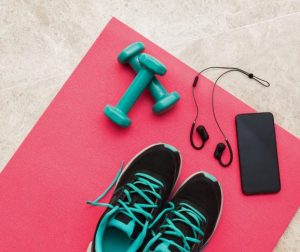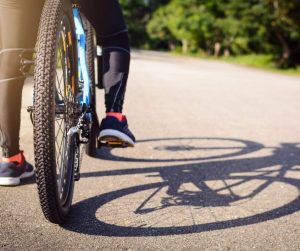Exercise is free, easy to access and you can start right now
- Reduces your risk of developing major illnesses, such as heart disease, stroke, diabetes and lowers your risk of early death by up to 30%.
- Helps with bone density, improving your bone health.
- Reduces your risk of falling.
- Boosts your self-esteem, mood, sleep quality and energy, as well as reducing your risk of stress, clinical depression, dementia and Alzheimer’s disease.

So what do we mean by exercise?
It depends on your age and your current fitness level.
Today, I’ll explain about exercise for people over the age of 65.
Exercise should include:
- Light activity/ being physically active daily
- Work on strength, balance and flexibility 2 days a week (particularly focusing on this is you are prone to falling)
- At least 150 minutes of moderate intensity activity a week or 75 minutes of vigorous intensity activity (if you are already active)
Light exercise means being up and about on your feet, so for example, going for a light walk or doing tasks around the house or going out to meet friends for a coffee.
Strength work means doing classes such as pilates or circuits, doing weights, resistance bands or physical work. Discussing this with a physiotherapist would be more beneficial as we would tailor a program to you and your individual needs. Likewise with balance and flexibility.
Moderate exercise would be doing activities such as walking, cycling, doubles tennis, golf, water aerobics or cutting the lawn.
Vigorous exercise would be an activity that makes you breath hard and fast, such as, running, swimming, uphill cycling / spinning, hiking uphill or singles tennis

Remember?
If you would like advice on how to get exercising to help improve your health and fitness please feel free to call us on 0214633455 for a free telephone consultation or book an appointment with one of our Chartered Physiotherapists here at East Cork Physiotherapy, Balance & Acupuncture Clinic by clicking the link below.
We hope you enjoyed part 1 of a 3 part blog series by Kate O Connor, Chartered Physiotherapist.
This blog is provided for information purposes only. The content is not intended to be a substitute for professional medical advice, diagnosis or treatment. Seek the advice of your doctor with any queries regarding a medical condition.
